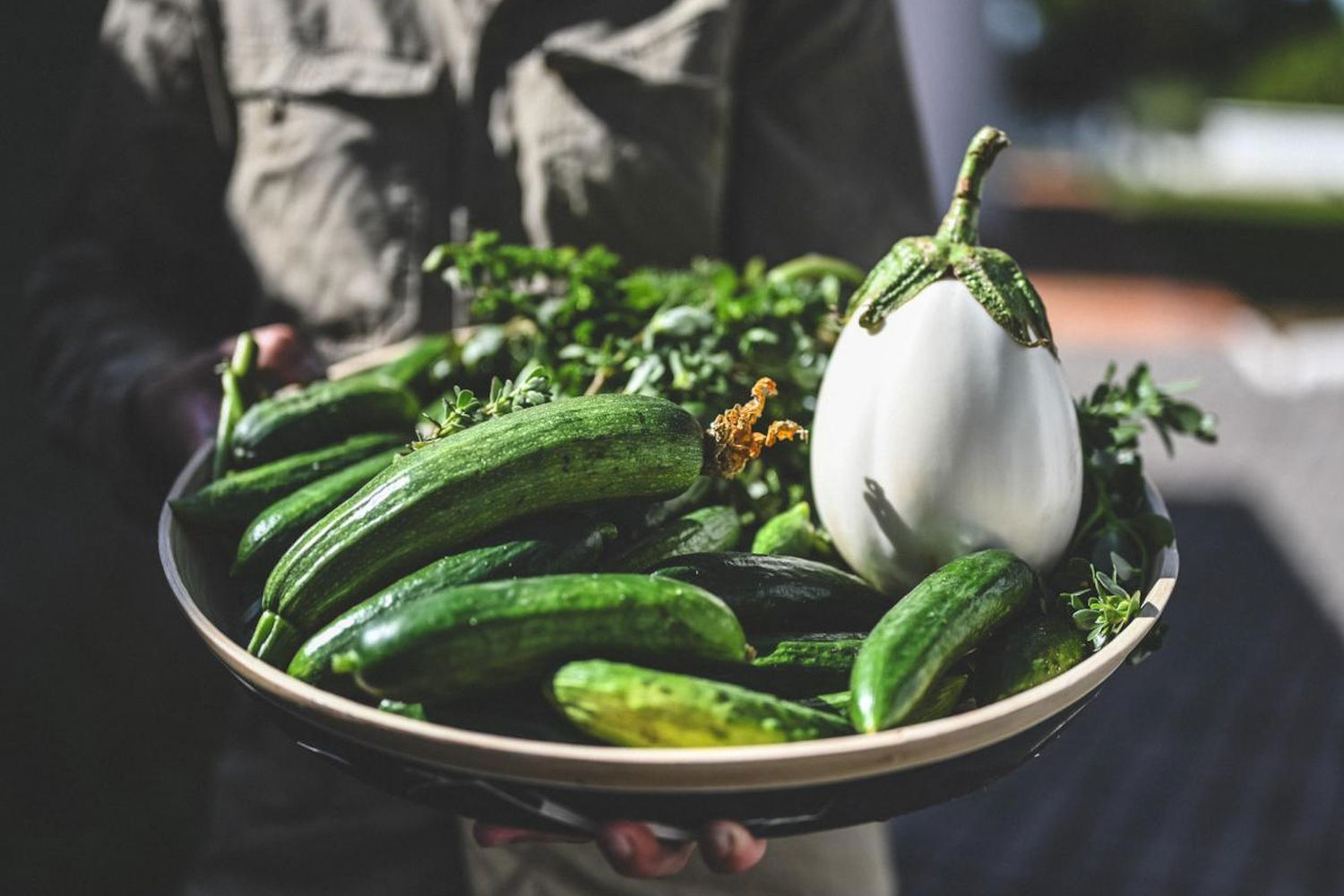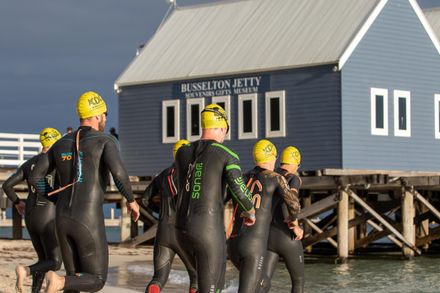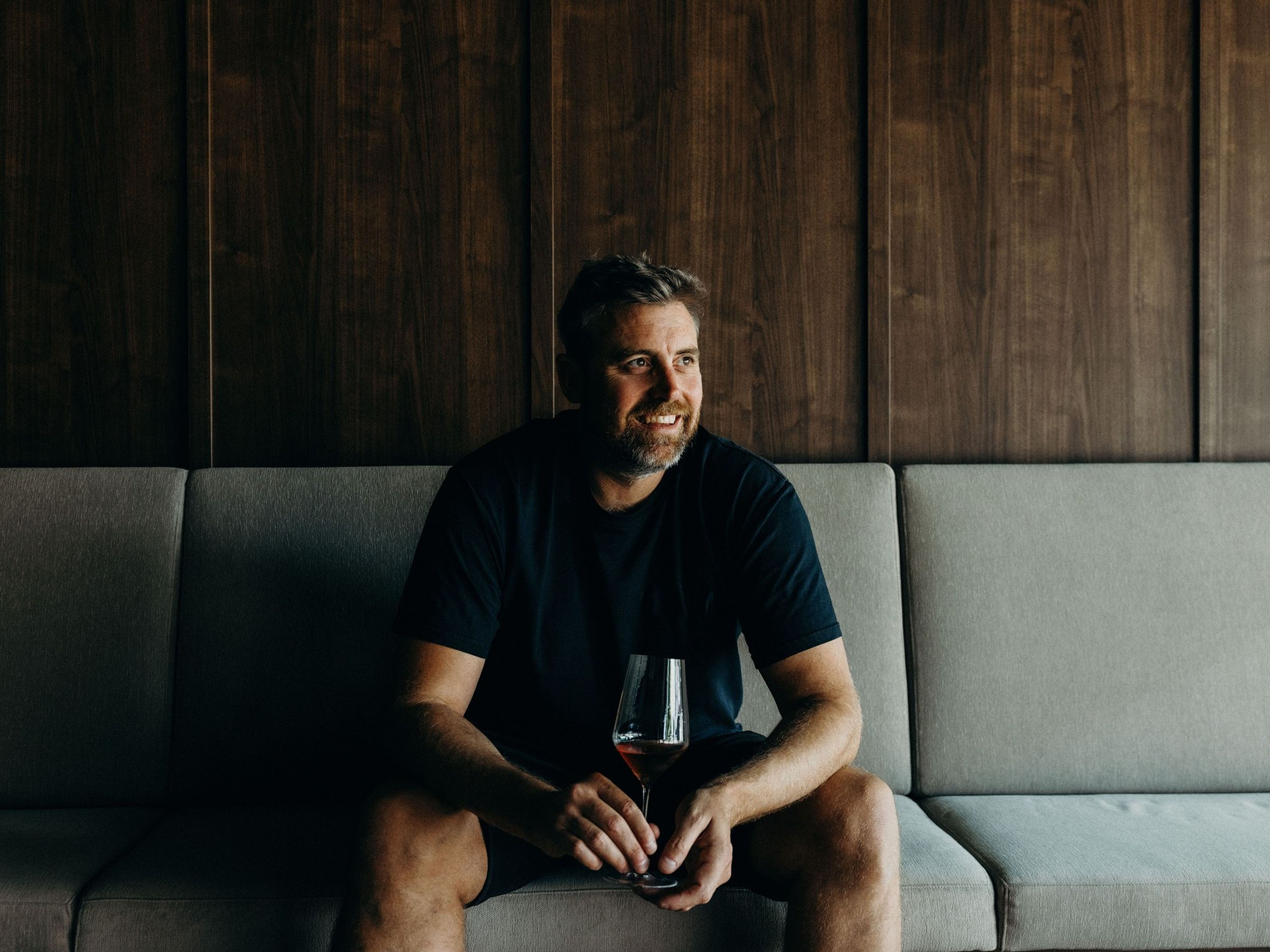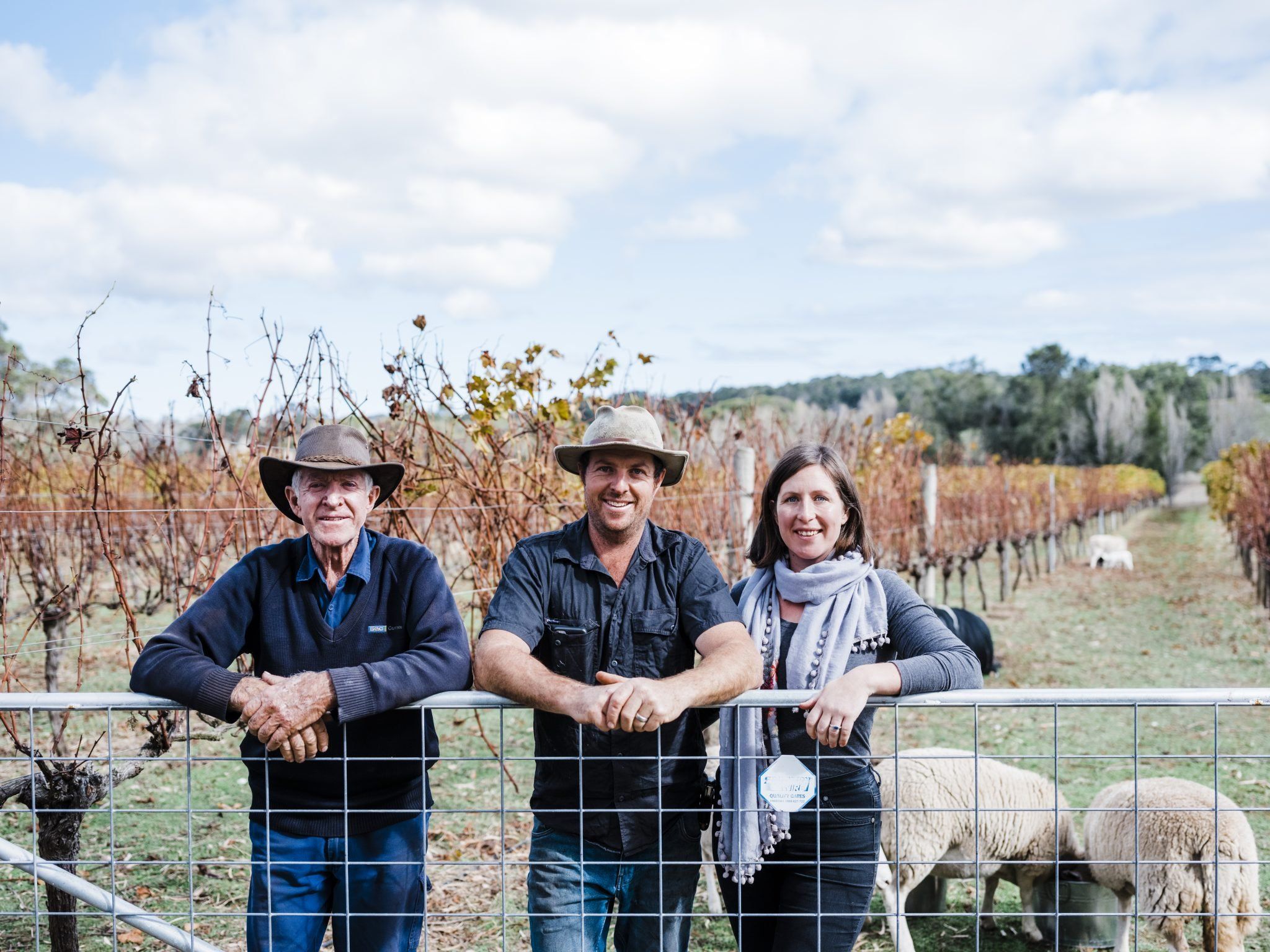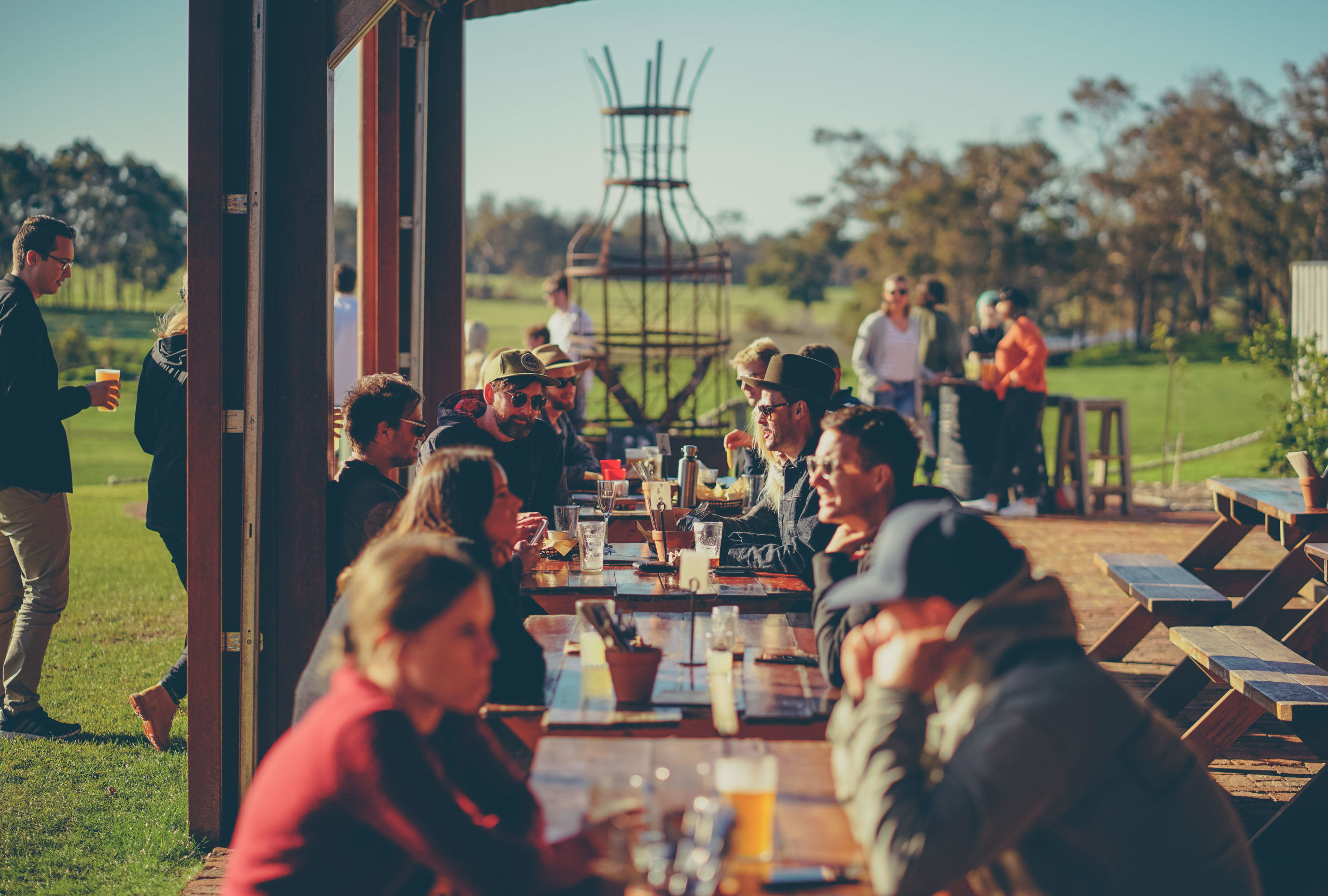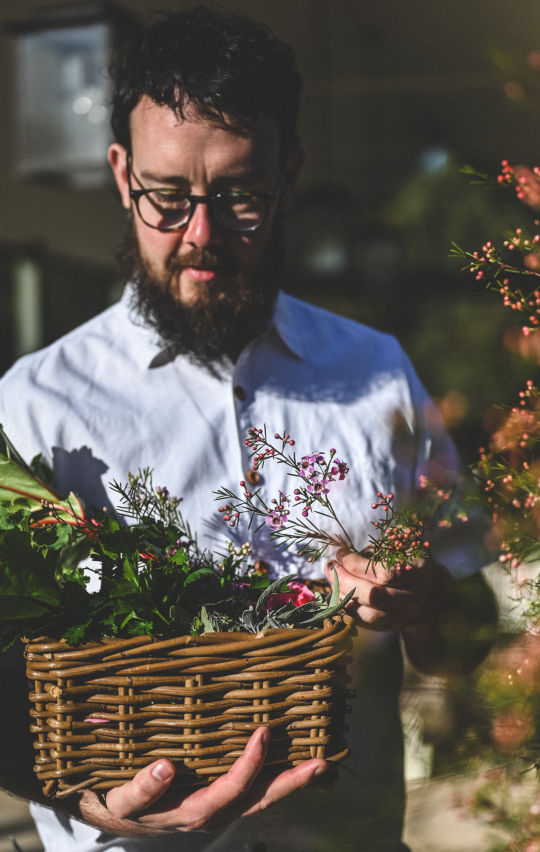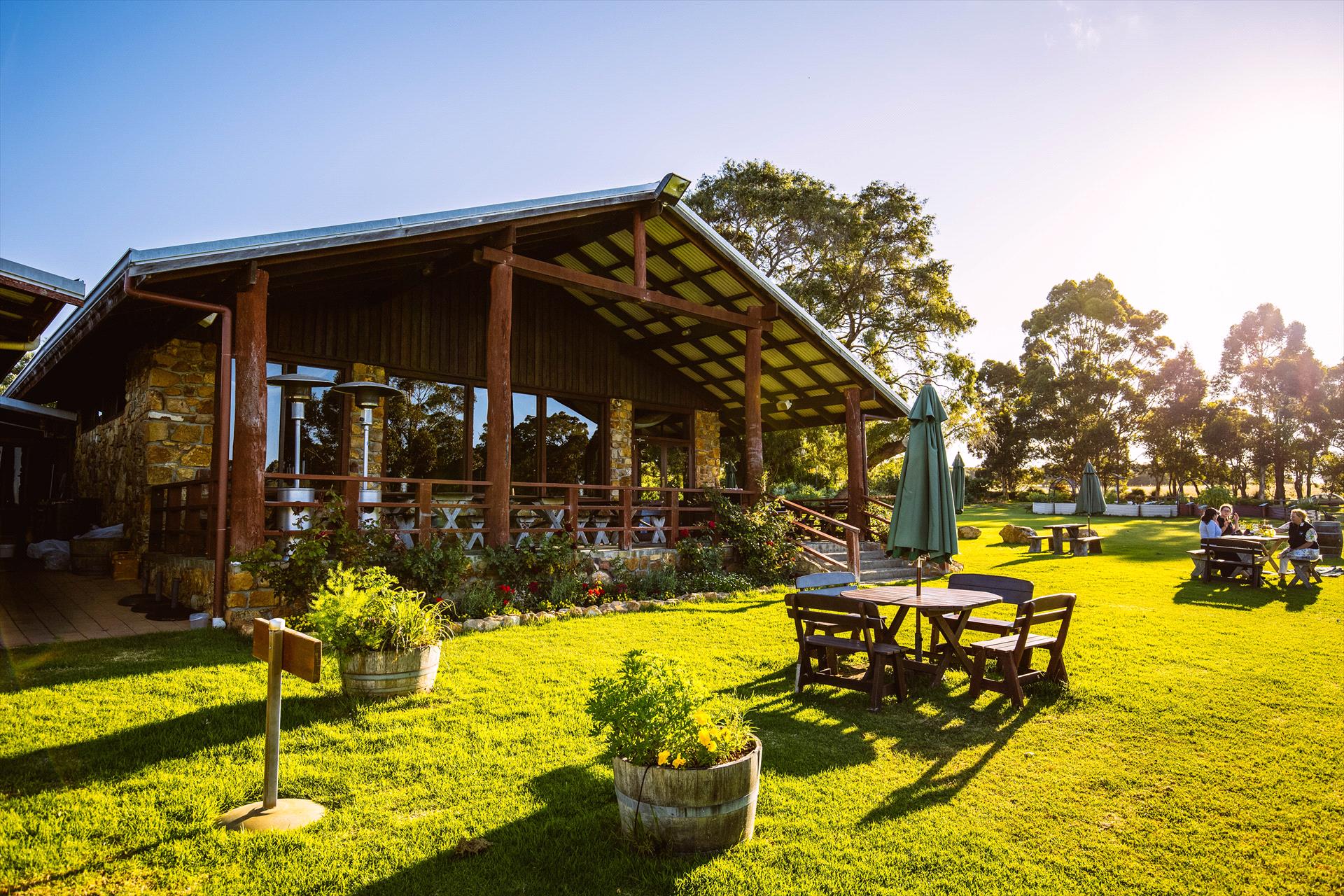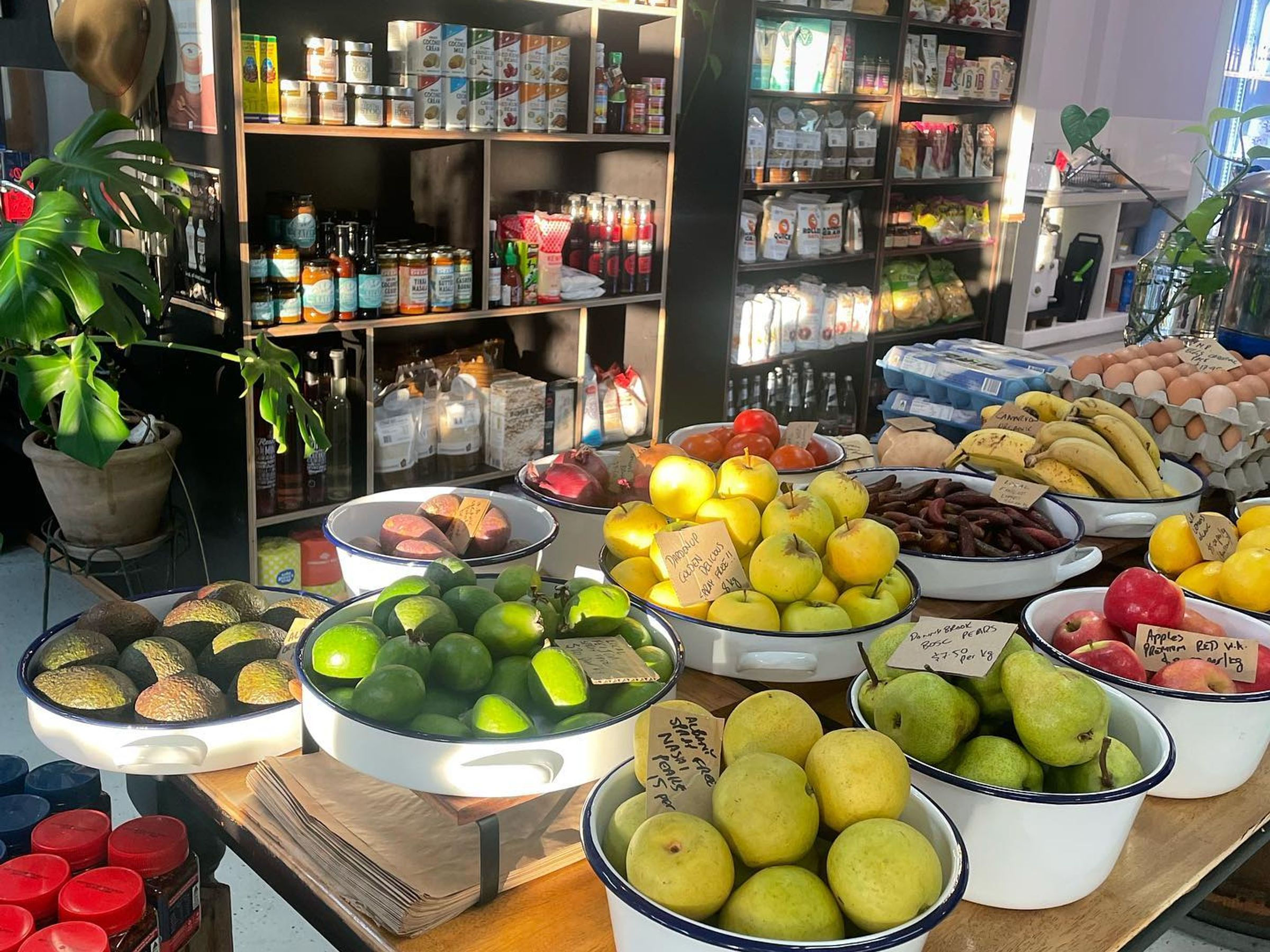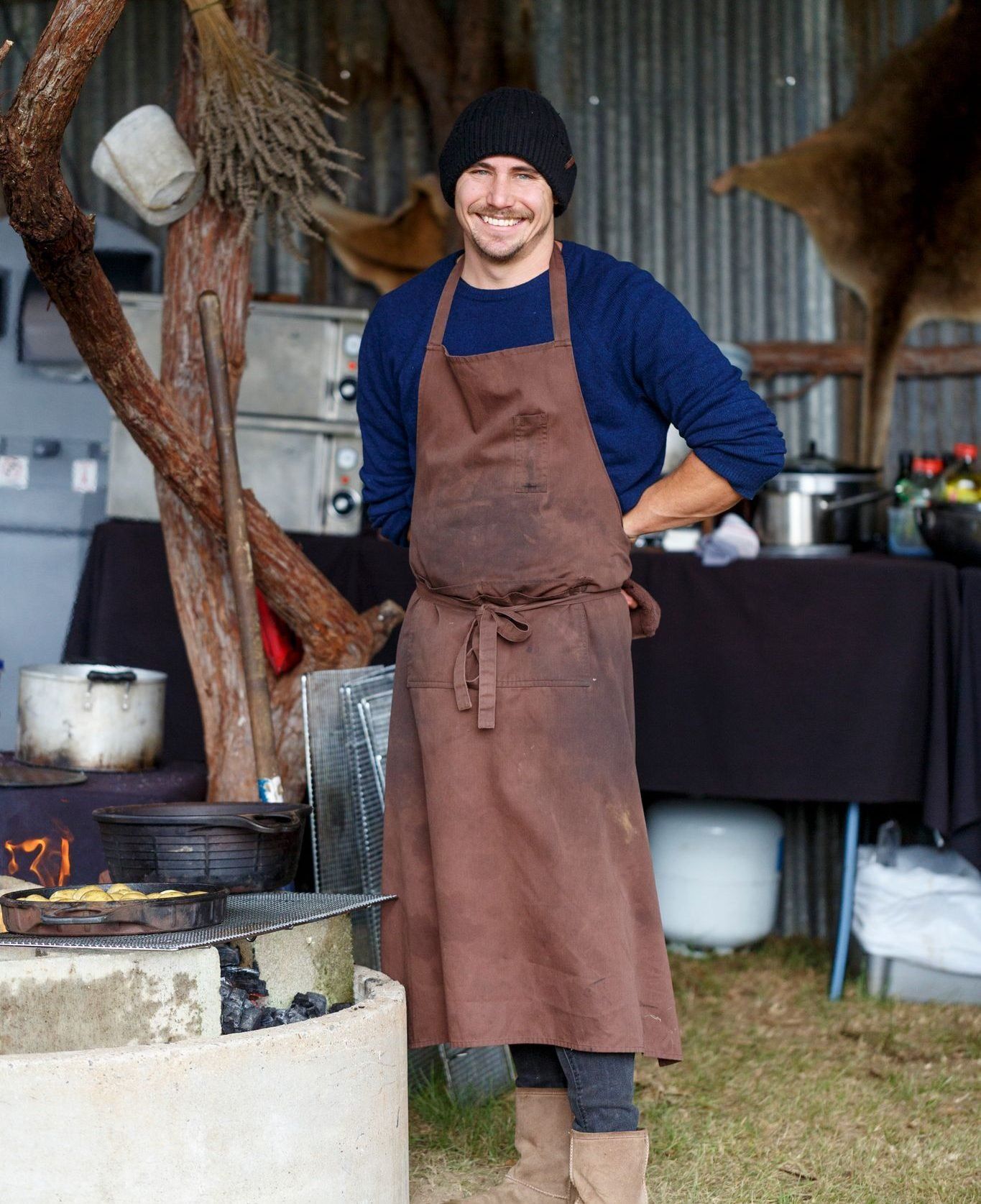It’s not a conventional farm to table model for chef Paul ‘Yoda’ Iskov, but then Fervor isn’t your conventional dining experience: Fervor runs pop-up dining events focussed on showcasing Australian native ingredients on locations in unique areas of Western Australia.
Tables are out in the open. The farm is the land around. Describing farm to table as “sourcing ingredients from as close as possible to the source where it grows”, Paul places special emphasis on partnership, working with traditional custodians and local communities for his produce.
“We try and work directly from communities that wild harvest, or with growers directly,” he explains. “It’s very important to know and respect the Culture that governs these ingredients and takes care of the land, and has done so for millennia.” Menus are precisely attuned to place: a Geraldton wax ice at one location becomes cabbage palm or marron at another.
Dining experiences are largely outdoors, the environmental backdrop and the community with which he connects further servicing the diner’s connection to the food on the plate. And through food, Paul is hopeful to be part of the change he wishes to see. “In an age where climate change is so prevalent, listening to First Nations people… on the best ways to maintain the land is a very important part of making sure we do things better into the future.”
Keep an eye on Fervor’s website for his next Margaret River Region pop-up.
